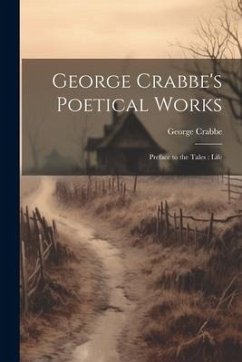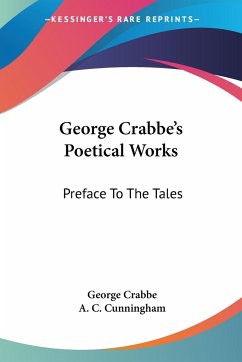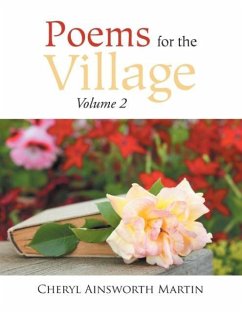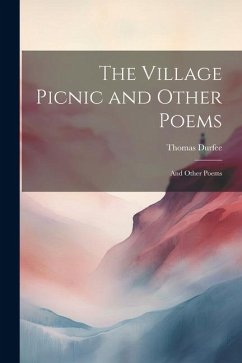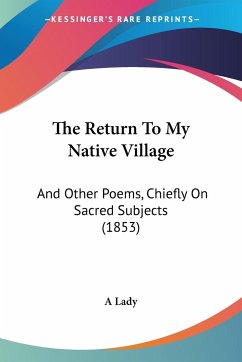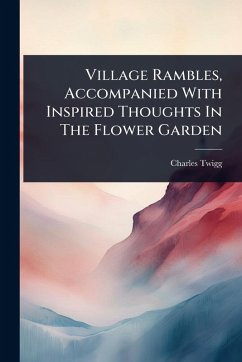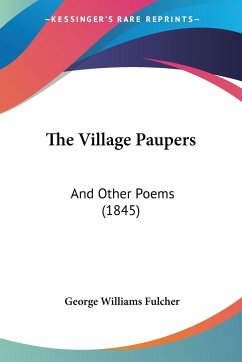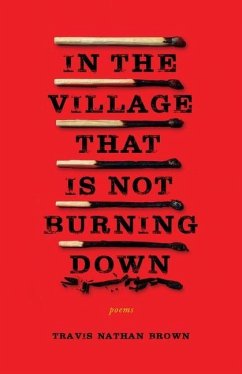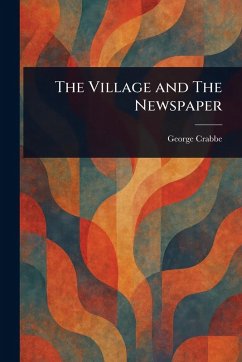Nicht lieferbar
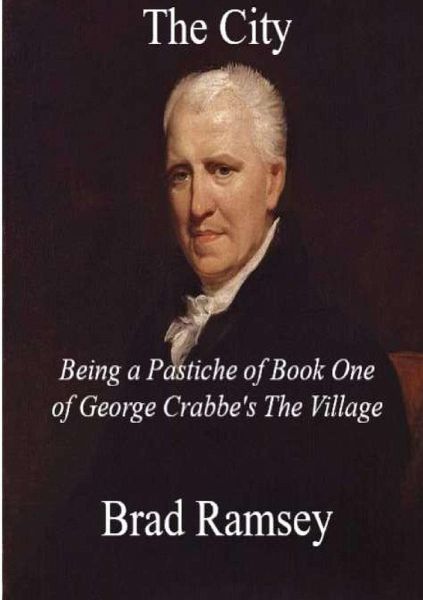
The City Being a Pastiche of Book One of George Crabbe's The Village
Versandkostenfrei!
Nicht lieferbar
Inspired by the work of English poet George Crabbe (1754-1832), Ramsey's lyrical debut book-length poem takes a rhapsodic tone while recounting his experiences living in community housing. Writing in the style of Crabbe's "The Village," which sought to depict the grim realities of village poverty in the 18th century, Ramsey gives an honest view of impoverished 20th-century urban life through untitled poems with a wide range of topics. Excoriating the gap between the privileged and the destitute ("The wealth around them makes them twice as poor") and confronting the fear of dying homeless and a...
Inspired by the work of English poet George Crabbe (1754-1832), Ramsey's lyrical debut book-length poem takes a rhapsodic tone while recounting his experiences living in community housing. Writing in the style of Crabbe's "The Village," which sought to depict the grim realities of village poverty in the 18th century, Ramsey gives an honest view of impoverished 20th-century urban life through untitled poems with a wide range of topics. Excoriating the gap between the privileged and the destitute ("The wealth around them makes them twice as poor") and confronting the fear of dying homeless and alone ("Here, to the church behold no mourners come"), Ramsey paints a heartbreaking picture. The verses have no named characters, but Ramsey exhibits a gift for empathy as he describes the plight of the lower classes through metaphor. However, the pastiche itself can be a barrier. The scansion of the heroic couplets sometimes falters, and many of the concepts can be lost in the anachronistic language. Readers familiar with older poetry may be comfortable with lines such as "Fain would they ask the hoary swain to prove," but this work will be less accessible to the average reader. Portraying a small and often unacknowledged slice of life in its rhymes, the book stands as a forceful condemnation of class stratification as well as a respectful homage to Crabbe's work. Even those readers who struggle with the language will applaud Ramsey's ambition of conveying 20th-century plights in an 18th-century style, and he succeeds in engaging the reader's sympathies, as he hopes: "Let this passing song distaste overpower,/ And make you more forgiving from this hour."




